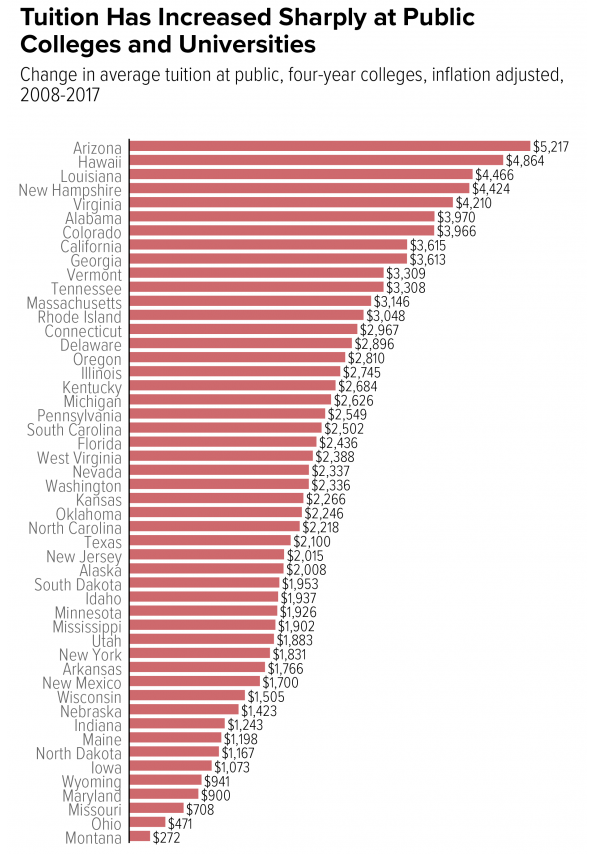
With college as expensive as it is now, public colleges have been touted as a good alternative for students looking to limit college costs.
But, like private colleges, tuition at public colleges across the country has risen rapidly over the past ten years.
Between 2008 and 2017, the average cost of attending a four-year public college went up in every state, even adjusting for inflation, according to a recent report by the Center on Budget and Policy Priorities, as reported by MarketWatch.
Many of our clients have been asking about the new Excelsior Scholarship program, which will provide free tuition at in-state public colleges for New York state students if their family meets certain income requirements.
While it may sound too good to be true, there are a lot of important details and things you need to keep in mind when considering the program. Read these important FAQs about the program, and contact us if you want personalized help figuring out whether it is a good option for your family.
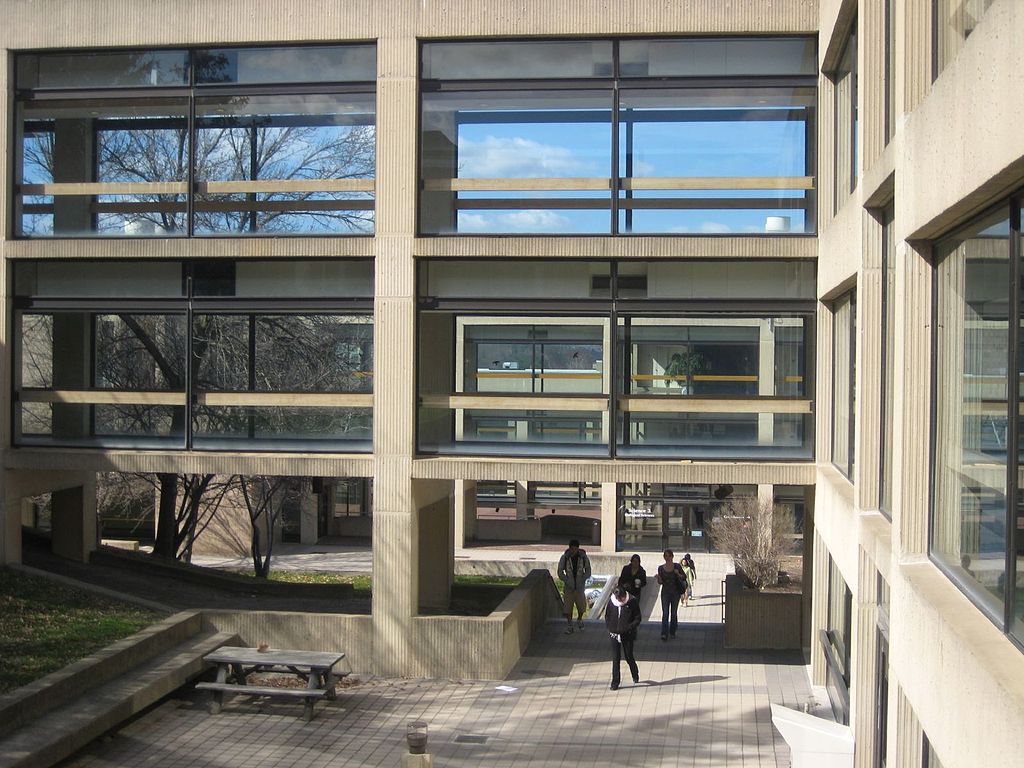
Being based in Western New York, we write a lot about the affordability and quality of schools in the State University of New York (SUNY) system. The SUNY system has been acclaimed for its high bang for the buck for both in-state and out-of-state students.
And a new list of rankings released by Business First backs up the assertion that SUNY colleges are among the best public colleges in the U.S.
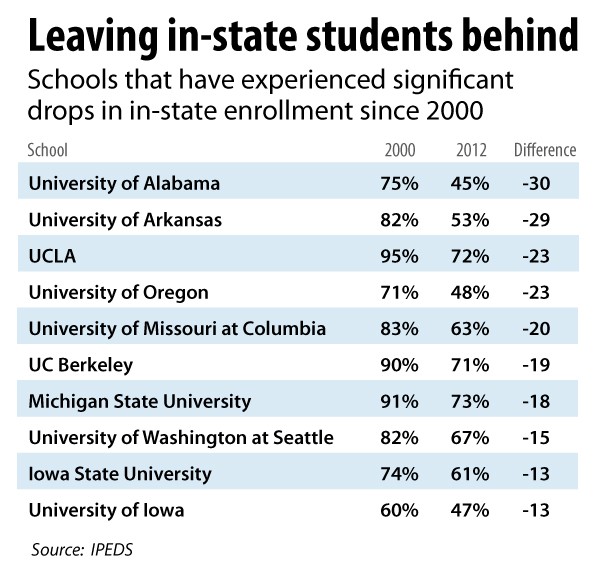
As budget cuts have hit public colleges hard, many have raised tuition to make up the difference. But others, including the University of Alabama, University of Arkansas and UCLA, have employed a different strategy: enrolling more out-of-state students, who pay higher tuition than in-state students. Out-of-state enrollment on the rise at public colleges A recent […]
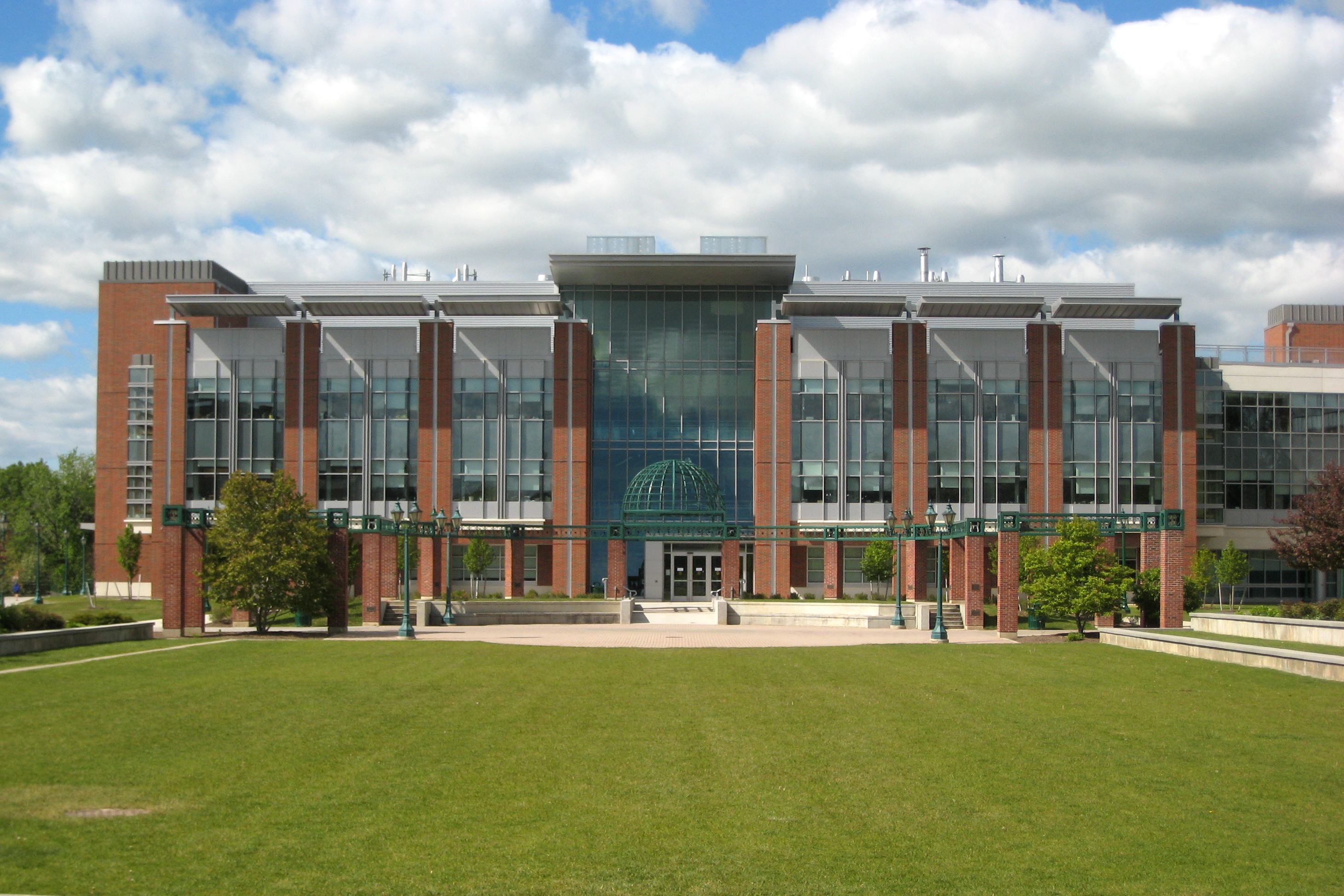
There’s been another win for the affordable State University of New York (SUNY) system.
A recent study by The Business Journals analyzed the quality of 484 public colleges in America, and several SUNY colleges ranked among the best.
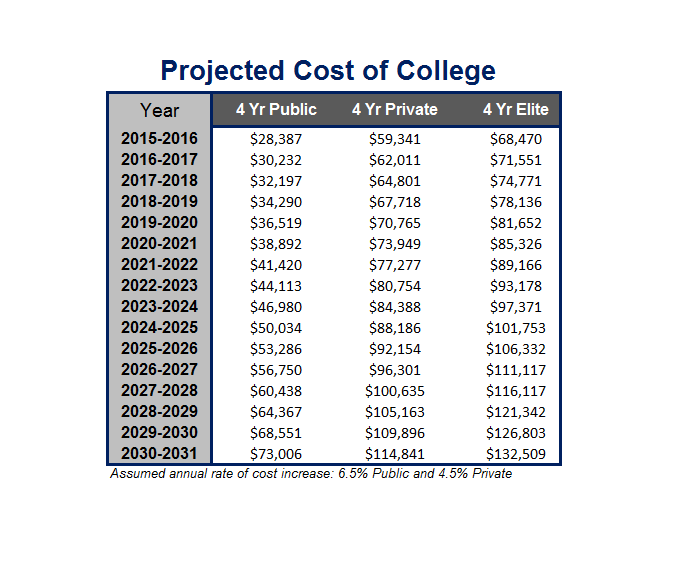
As if college weren’t already expensive enough. A new report from Forbes projects that the cost of four years at a private college could rise to $334,000 for students starting college in 2018.
Considering that’s less than four years away, that’s a pretty huge spike from the already-high current cost of attending a private college. The average cost of attending a four-year private college is now over $59,000 per year, or $254,000 over four years, based on projections that have the cost rising 4.5% each year.
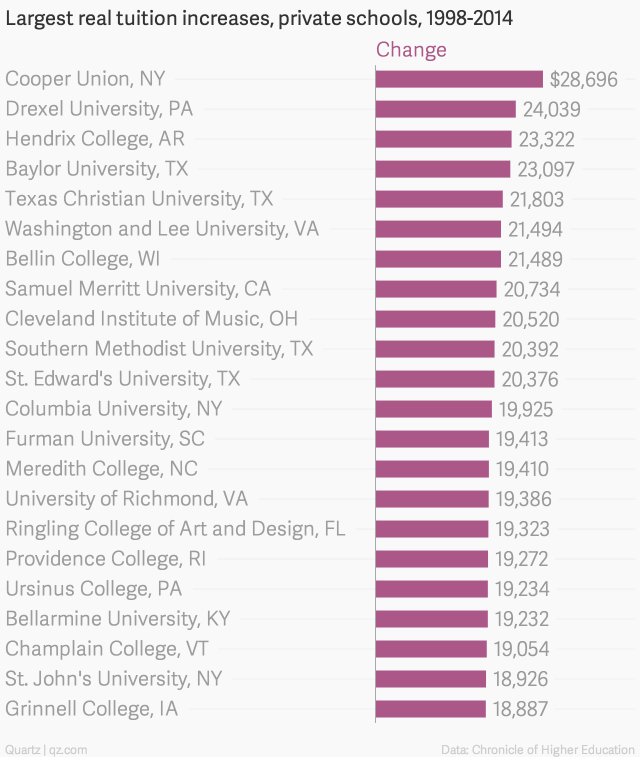
We’ve written extensively how college costs, both public and private, have risen dramatically over the past two decades and continue to rise each year.
While nearly every college has raised tuition, some have increased much more than others. The charts from Quartz rank public and private colleges by the largest tuition increases in 2014 US dollars, after adjusting for inflation.

With some private college prices topping $60,000 per year, it’s no wonder that more students are considering lower-cost public colleges as an alternative.
According to US News & World Report, the average cost of attending an in-state public school is $8,500 per year, compared to the average annual private school cost of $30,500 — a difference of $22,000 a year.
But choosing a public college doesn’t have to mean sacrificing quality. Many public colleges are just as competitive as private colleges–at a significantly lower price point.

If you’re looking to go out of state for college but don’t want to spend the money on a private college, considering some low-cost public colleges is a great idea. Depending on where you live, you may find that these colleges are even cheaper than a public college in your own state.
Check out the list below from U.S. News for the top 10 colleges in the United States with the lowest tuition for out-of-state students. They may not be as well-known as some of the bigger-name schools, but they can provide a quality education at an affordable price.
As we’ve reported, costs at public colleges and universities are on the rise, most often due to state budget cuts to higher education.
Unfortunately, the State University of New York (SUNY) system is not exempt from this trend.
According to Buffalo Business First, the SUNY board of trustees is set for its annual approval vote this week in New York City to raise tuition by $300, effective for the fall 2014 semester.